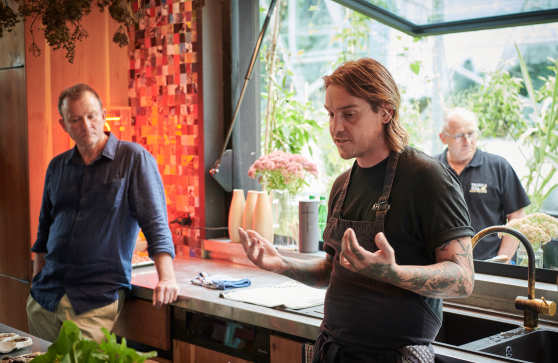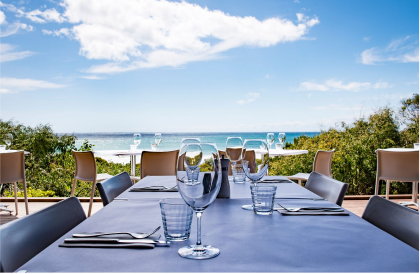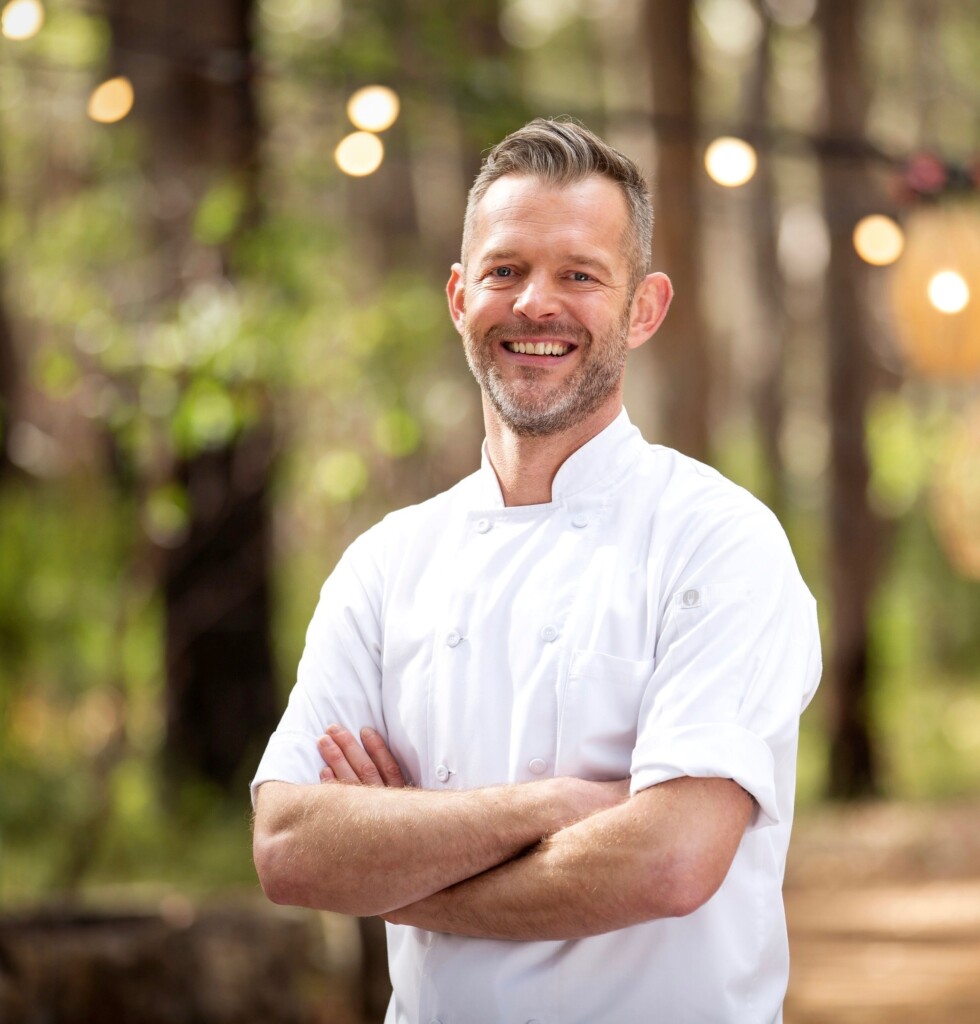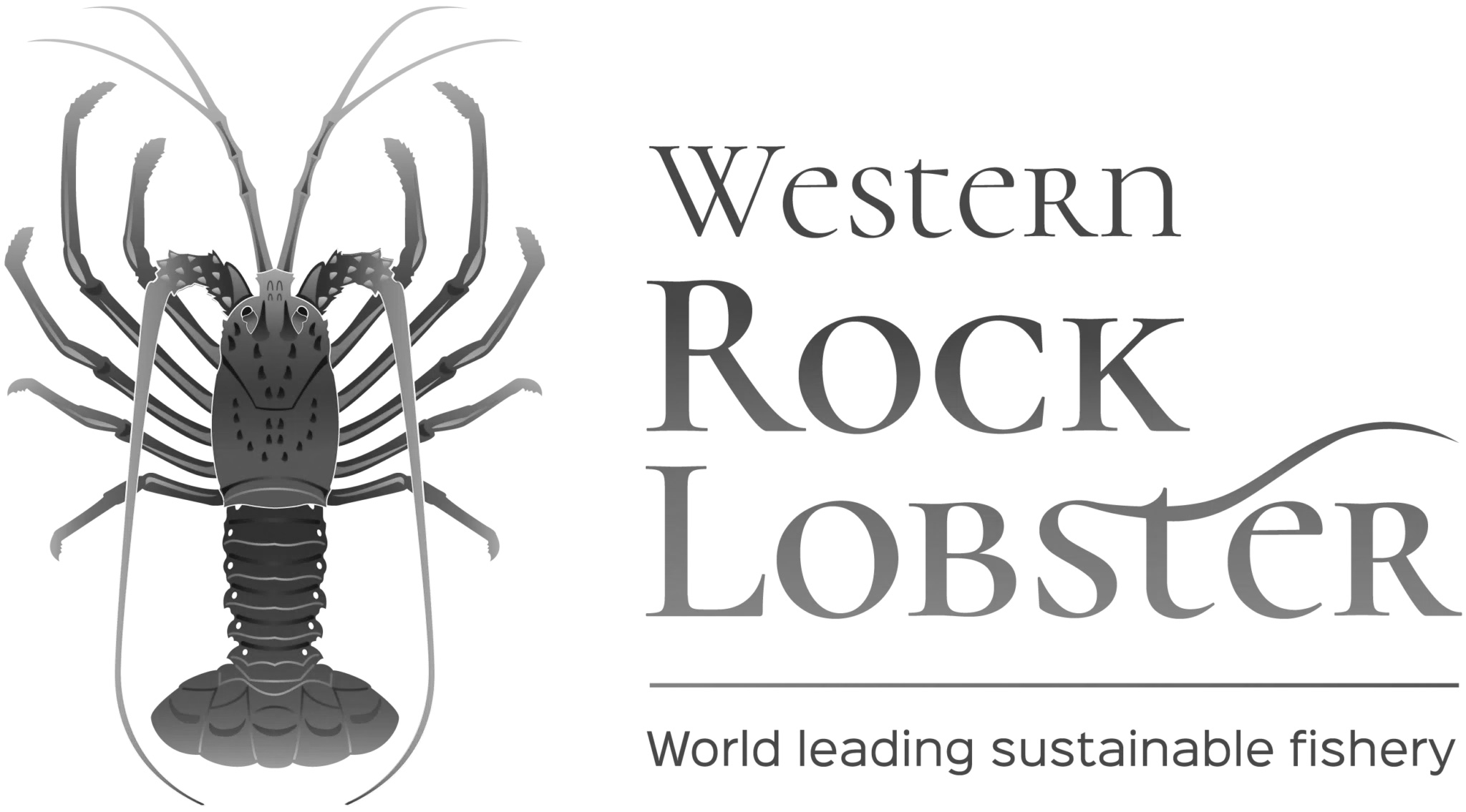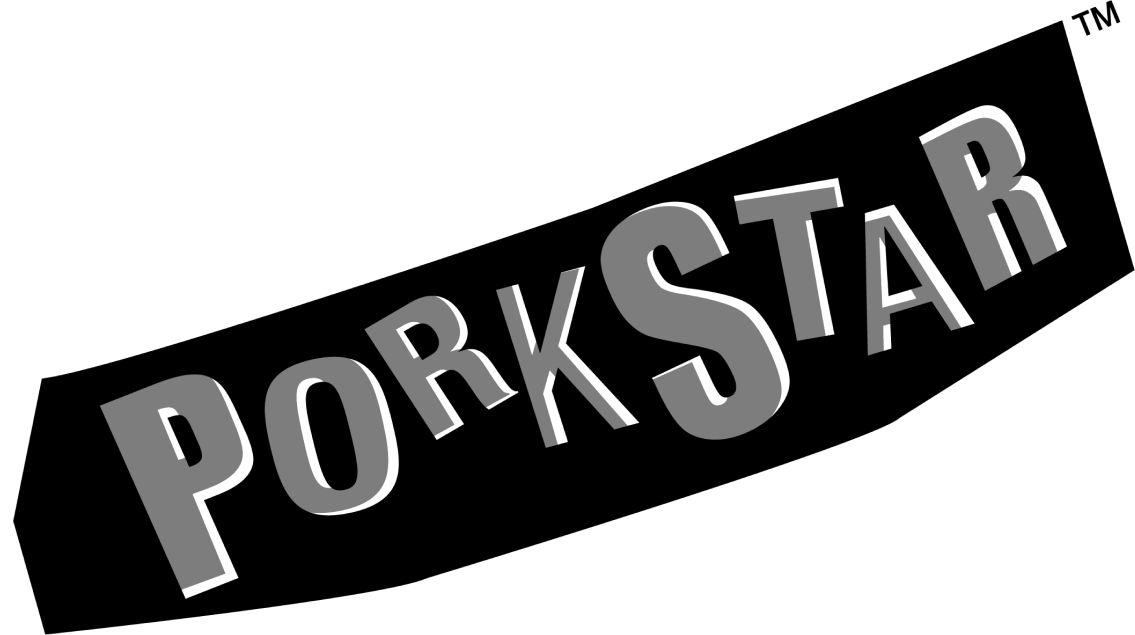In the past year we’ve seen an influx of returning Western Australian talent, set on riding out strange times in familiar surroundings. But for Ben Ing, the Canadian former head chef of Noma in Copenhagen – widely regarded as the world’s most influential restaurant – it’s been a move of a more permanent nature. With his Perth-raised partner Kirsty Marchant, the former Noma head gardener, Ing has set his sights on a new chapter in the South West.
As he readies himself for his next career move, Ing spoke to us about his plans, his formative years and life at Noma.
Head chef at Noma is surely one of the biggest jobs a cook can have. Leaving must have been a big decision. Did COVID figure in that?
We actually gave our notice before COVID. It was just time. I was at Noma seven years and Kirsty was five years in Copenhagen, but also spent time in London and Berlin. This is a chance to be close to family and do something for ourselves; start something from the ground up.
This last year has of course been a wrench in everyone’s travel plans, but ideally it would be our plan to be in Canada for months at a time every year and our lifestyle here could accommodate that. But yes, the plan is to stay in WA, and right now it’s sort of the perfect opportunity for me because I can’t work [Ing is still traversing the visa system]. I’m looking at camping trips, to go to Albany, Esperance, up north, and getting to know producers.
Are you thinking of establishing a restaurant here in the South West?
We’re planning to do something together but have no solid plans to be honest. We’re definitely in love with hospitality and that’s what we know. Kirsty has got into growing – she’s running the garden at Arimia – and she’s learning the seasons as we speak. And in fact so am I.
So would you be looking at a farm-to table-model?
I could see myself doing that. Noma was this amazing experience, but I feel like I’m also really influenced by my two mentors from Ottawa. Simon and Ross Fraser ran a café with 27 seats and were picking up stuff from the market, and it’s just sort of stuck with me. People ask if you have a cooking style or what’s your favourite food to cook. Throw that question out. I like to cook eggs at home. Does that mean I’m going to open a breakfast restaurant or something? But I think this sort of style has stuck with me and it’s true to how I love to cook. Of course Kirsty has experience at front of house and I have experience of the high techniques of Noma and fermentation, so that’s all in the background as well.
People ask if you have a cooking style or what’s your favourite food to cook. Throw that question out. I like to cook eggs at home. Does that mean I’m going to open a breakfast restaurant?
Much has been made of your time at Noma but really the journey started on the other side of the Atlantic.
One of my mentors [in Ottawa] was really encouraging me to just get down to New York and do some stages. I was 22 and I staged at a few places. Eleven Madison Park sort of stuck out in my mind and I kept going back until I did get a job there. I loved the city and I also loved Eleven Madison. I loved it – the best food you could imagine when you’re a younger cook – but I went back to Ottawa after my year visa. Coming from New York back to Ottawa, it’s just a different level.
And so the need to travel took hold?
I reached out to Daniel Humm at Eleven Madison Park and he was glad to shoot off a few emails. He helped me get the opportunity to do a trial at Noma, whereas there were other restaurants in Copenhagen that got back to me and said come and intern for three months unpaid. Having come back from New York, well, you don’t make too much money. And I just wanted to work. Noma was the one I went for because they had this two-week [unpaid] trial, no guarantee, but it paid [after that].
Was working for René Redzepi at Noma much like Eleven Madison Park, or was it a culture shock?
At Eleven Madison it was a French kitchen. Daniel’s background is Michelin style, extreme technique. Really, really fun and busy. Then going to Noma it wasn’t so Michelin driven. A couple of years before I got there it was the time of pushing the envelope service wise, using insects, all these different flavours.
One thing that comes to mind when you ask me this is the palate of René and the team. It’s so much different than heavy fat, butter, French inspired, which kind of threw me a little bit. And I just couldn’t get it. If you’ve never done something before you don’t have something to relate to.
Would you say it was lighter, or more driven by umami?
Umami is a good word. It was the first time I was getting into the fermentation processes. They didn’t quite have the lab in the shipping containers yet but Lars Williams [former head of research and development at Noma] was doing experiments on koji and all this, and it was actually on the cooks to prepare it as well, whereas now it’s solely done in the lab and it’s a bit more precise.
I wanted to learn as much as I could at different restaurants, take the good and the bad, and develop for the next role. When I went to Noma I didn’t actually have a plan. I didn’t say, OK this is going to be a year and I’m going back home to open a restaurant.
Your progression seemed quite rapid between arriving in Copenhagen and taking the head chef role.
It was three years. Dan [Giusti, former head chef] had talked to me maybe 7 or 8 months before he was going to approach René, and I did the same with my replacement as well because it’s a big deal and you want to have a bit of time to think about it if you have a partner or family.
So, Dan essentially gave you the tap on the shoulder. Was that something that was widely known during that period?
He said “I think you can do it” just before the Noma Japan pop-up. I was excited but it was quick and [I thought], shouldn’t I be a sous-chef [first] and take on some more responsibility? But the kitchen hires from within, and there’s such a good support team. Then René, once he’d said OK and signed off, actually talked to all the sous-chefs, all the seniors – there were chefs there longer than me. I didn’t want to be that guy coming in, you know. Not that I was this brash, cocky chef, but I wanted the support and René wanted the support of everyone.
There’s nothing like a baptism of fire, and your first day as head chef was the opening of the Noma Sydney pop-up.
Training began before when Dan was still there, and I was being introduced as our new head chef to our regular guests, everyone in Copenhagen, to friends of René. But January 2016 in Sydney I was on my own. Just throw you in there and sink or swim, I guess. Maybe it helped as well because it was so new for everyone and we were trying to run this huge restaurant in Barangaroo.
Did you feel from the beginning that your time at Noma would have an expiry date?
I get what you’re saying as I was always year to year [as a younger chef]. I wanted to learn as much as I could at different restaurants, take the good and the bad, and develop for the next role. When I went to Noma I didn’t actually have a plan. I didn’t say, OK this is going to be a year and I’m going back home to open a restaurant.
Day-to-day Noma life, pop-ups, relaunching Noma 2.0. It might be a cliché, but was it something of a rollercoaster?
When you look back at the seven years there was some big event every year or two. I got there and a couple of months later René announced that we were going to Japan. Then we’re going to Australia, which they’d started planning; another thing to look forward to. And then it’s Mexico, 2017. That was probably our most successful pop-up because we’d learnt so much from Japan, took that to Australia and I think we really nailed it in Tulum.
[With Noma’s relaunch] I was lucky enough to go on research trips to Greenland, Sweden, Finland and Iceland. It was about rediscovery, I guess. René hadn’t really done that since he opened Noma and he wanted to reconnect with everyone. There was always something to look forward to, to put your hands in to, and really help the restaurant, help the team, put your mark on it. In the space of seven, eight years that’s so much excitement for a young chef.
Photo by Max Brearley

